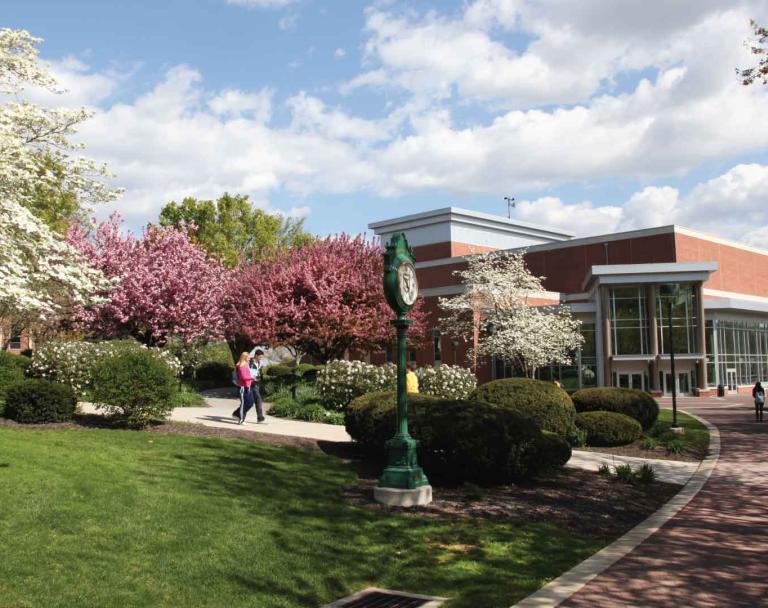Megan Tyson

York College Graduate Publishes Study on Augmented Reality in the Classroom
Megan Tyson ’21 wanted to help her high school students develop better vocabulary skills. She used technology to see how she could better engage them.
Megan Tyson ’21 remembers when flashcards were the primary way teachers tried to get their students to recall new information. The William Penn Senior High School English teacher noticed that method didn’t work for everyone.
“Technology is such a changing, adaptive force,” she says. “I wanted to make sure I was using all the tools available to me in the classroom.” She was so drawn to finding new ways to help students learn that she studied the use of Augmented Reality (AR) in the classroom, leading to her work being published in Issues and Trends in Learning Technologies.
That journey—from teacher to published author—started at York College of Pennsylvania.
Learning new ways
Tyson enrolled in the College’s Master of Education Program with a specialty in Educational Technology. She wanted to learn about the latest classroom tools, but, more importantly, Tyson wanted to help her students tackle some of their biggest challenges.
As an English teacher, Tyson has seen vocabulary impact students across the board. If students don’t have a good understanding of grade-level vocabulary, they will struggle with reading comprehension or may not score as well on state testing or their SATs.
“It’s something that impacts so many aspects of a student’s education,” Tyson says. “Helping students excel with vocabulary is incredibly important to me.”
A capstone project
It was while developing her capstone project for her master’s program that Tyson decided to find new ways to help students expand their vocabulary. Students in 9th, 10th, and 11th grades participated and used both flashcards and AR through a program that can easily be accessed on student cellphones to help them learn the meanings of new words.
It helped in a lot of ways, Tyson noted. Through the AR program, students would find themselves exploring city scenes, such as Times Square. The words and their definitions would be integrated into the scene, giving students a technology-driven visual to help them recall the information.
It also helped remove the distraction of the cellphone, Tyson adds, which can be a problem for some students. Rather, this exercise helped them use their phones intentionally to learn.
After a period, students were tested to see if they recalled the information they learned. Students who used the AR program scored higher. They also felt more comfortable and engaged with the way they learned, she says.
With her work now published, Tyson feels a great sense of accomplishment. Her research could now be a resource in someone else’s study, and “that feels incredible,” she says.
“York College helped me not only learn new ways to impact my students, but they helped me share what I learned with others by encouraging me to get published,” Tyson says. “That’s something I can be really proud of.”

